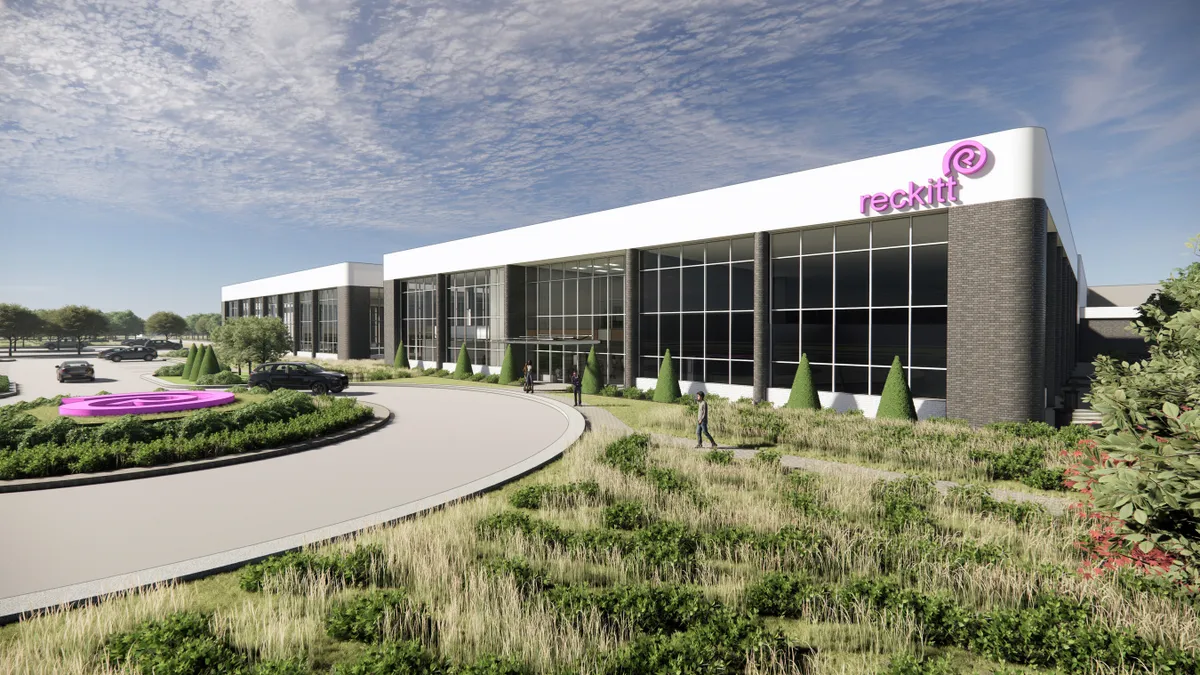Reckitt, the maker of Mucinex, Air Wick and Lysol, is localizing its supply chain, SVP of supply for North America Philip Hampden-Smith told Supply Chain Dive in an interview.
When COVID-19 struck, the company reconsidered its approach on supply to be more consumer centric, Hampden-Smith said.
For example, a U.S.-based facility offers quicker reaction time to changing consumer needs, versus a traditional supply chain that imports products from overseas.

Reckitt is also focused on resiliency.
“Resilience is such a key factor, given all the variables that are in play these days, whether it's geopolitics, whether it's material challenges, regulatory environments, etc, but in a nutshell, I'm really looking to do is ensure that I build a future state, a supply network that can sustainably outperform,” he said.
Establishing a U.S. flagship facility
Last year, Reckitt acquired a manufacturing site in Wilson, North Carolina, as part of its resiliency strategy. The site is set to expand customer and consumer access to over-the-counter products like Mucinex tablets and liquids, helping reach demand for cold and flu symptom relief, according to a December 2024 press release. The facility will also produce Move Free vitamin supplements.
“It's all about onshoring, localization and really being much more agile to our consumers,” he said.
The 310,000-square-foot warehouse will be equipped with new technology and capabilities, including digitalization, and will serve as the company’s U.S. flagship for over-the-counter manufacturing, Hampden-Smith said.
“It will absolutely have the greatest of people, the greatest of assets and in terms of operating model and operating systems, it will be one of our most advanced facilities,” Hampden-Smith said.
The $200-million facility investment, which aims to be Reckitt’s largest U.S. over-the-counter facility, is slated to become operational in early 2027.
Future expansion
Outside of the Wilson facility, Reckitt has plans to potentially expand its capacity. The company did not disclose specifics on what is to come next.
“We look at optimization, but we're undertaking network assessments, both in the manufacturing side and the warehouse side. So yes, resiliency means it never ends, but yes, there is plans outside of just Wilson,” Hampden-Smith said.
Reckitt’s U.S. operations consist of three centers of research and development and seven manufacturing sites. Locations include Utah, New Jersey, Indiana, Missouri, Minnesota and Michigan, according to Reckitt’s website.
Clarification: This story was updated to clarify which products help reach demand for cold and flu symptom medications and whom the products are for.













